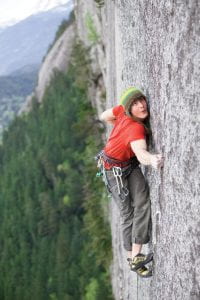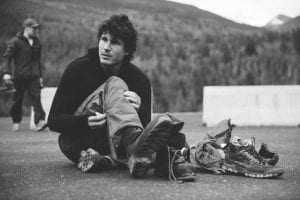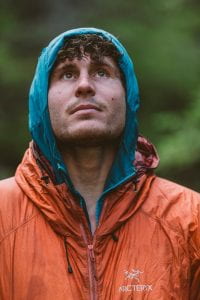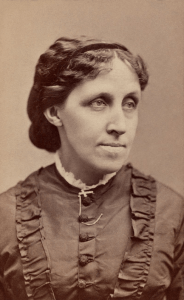Progress Report
This week, I learned a lot and improved on what I could do on the bass. Last week, I was focused a lot on using multiple fingers instead of just my one to play scales or arpeggios. I had improved a lot that week, and even more so this week with that goal in mind. This week(s) during my meeting with my mentor, I also learned the major scale! I thought that this was a really big thing as one of my goals was to learn the ‘bass scales’ Tito Paul taught me a lot about the finger pattern for the major scale and how you can change your hand position up down and back and forth over the fret board to get different major scales. I figured out that depending on where you start on the fretboard (the frets move up and down by chromatic/half steps) you get the major scale starting on the note. This gave me a lot of freedom to experiment with starting on different frets to see and hear what sounds right and what I have to adjust to the finger position if I start a string lower or a fret higher etc. So this week I had spent a lot of time playing around with arpeggios and the major scales seeing how I could improve with using multiple fingers and how I could change keys. I practiced way more then I usually do this week! Most mornings when I had extra time, I would be in the little music corner practicing bass before I had to leave. I think maybe it also had to do with the fact that I had more material to actually practice. Using the material that I got from my meeting with my mentor, I experimented with playing the same arpeggios in different frets (same key, same root note)
Video
In this weeks video, I play (in order) Chromatic (half step) scale, A, D and other random arpeggios , and 3 major scales.
Video #3
How to Have a Beautiful Mind
This year for In-Depth, we’re using the book “How to Have a Beautiful Mind” by Edward De Bono to guide us through the project. The book talks about how to have a beautiful mind (as the title explains) and how to have beautiful conversation with others. Over the course of a few weeks, we’ll learn about the skills talked about in the book and apply them to our In-Depth project. This week we read about argumentative thinking vs. parallel thinking. De Bono explains argumentative thinking as a way of the statement “I am right, and you are wrong”. He then goes onto say that parallel thinking was what the basis of “the Six Hats” method of thinking was based on. The Six Hats method of thinking can be summarized as such:
White Hat – information or facts. They can also be what is called ‘soft facts’ which includes information like rumors.
Yellow Hat – values or positives. Yellow Hat information points out why an idea might work or the good parts of it
Green Hat – creative thinking. This hat ‘asks’ for ideas and encourages creative thinking
Black Hat – critical thinking or judgement. This information is usually described as the voice that helps you act safely
Blue Hat – This hat is typically used to define the purpose of a conversation, and in turn guiding what hats should be used.
Red Hat – emotions or feelings. Red Hat information doesn’t always have to be backed up by facts as it can sometimes be based on intuition
These hats are put on and off (metaphorically of course) when discussing ideas with someone. They help make it so that everyone is looking at the issue/idea from the same point of view and at the same time.
Conversation with Mentor + Coloured Hats
Conversation (I don’t have my mentor’s permission to put a recording of him in my blog)
M – Mentor, Tito Paul
K – Me, Kalayla
~Somewhere in the beginning of the meeting~
M – Well okay, you know what, remember we said we were going to try the do re mi.
K – Yep
M – Like *plays major scale*
M – Okay so we’ll do that um so I have the extra string on my bass, can you see, so let’s start with your lowest string, I’ll show you where to put the fingers, try your lowest string which is the e string
K – Oh okay, so *repeats*
M – Right and then the second fret for the next note then the fourth fret. Then you go to the a string which is the next string up. Open, then the second fret again. Right. And then you’ll go to the fourth fret. And then we’ll go to the next string. So, you’re uh third string. And then you go to the first fret go to the second fret. So that’s you’re do re mi. Again that’s *repeats instructions again*
K – Cool! So like *repeats what Tito Paul just played*
M –Yeah! So it should sound like *plays scale slowly* and then you can go backwards!
K – Wow cool!
M – You got the fingering, right? So it’s like *plays with fingering*
K – *plays back with the right fingering*
M – So. Once you go up and down, you can do the same pattern on the next string up. Remember you’re starting on the fourth string, after you go up. Go to the third string.
Plays*
K – Oh yeah yeah, I see so you can do the same pattern on different strings.
M – Yeah, so you can practice that so you’ll build up speed . Go up and then go down and then you can go to the third string and go up and down. So like *demonstrates*
M – So that’ll ‘speeden’ your fingers and um you know get you more comfortable playing on more strings.
K – So then if you um like if you do it on the lowest string and you have three strings down you play on, what happens if you get to the third string down and you only have two strings below to play with?
M – Oh okay when then you’ll have to go up higher on the neck. You’ll player higher up on your highest string. And then you’ll skip to the sixth and seventh fret
K – Oh so like *plays*
K – Ohh cool
M – So you can practice that as well for next week and we can figure out something to do with that
~Later in the Meeting~
K – *attempts to explain scale modes*
K– Hmm I don’t think I explained that well, did that make sense?
M – Oh ok, umm, a little bit ahah I’m not too good with scales
K – Yeah I can send you the website I got it from.
M – Yeah, I’m not too good with scales because I just play from my ear, right? So I think yeah, that’s something I can check out too as well.
K – Yeah I’ll try and find a good website
M – Hahah yeah see I’m learning from you now too
K – Haha, yeah we’re actually doing it in theory as well, yeah piano theory can suck sometimes.
M – Ohh you’re still doing piano?
K – Yeah so part of the piano lesson this year is that I have to take like the level theory? Uh and it can suck because its like a big huge amount of confusing scales, but, oh well
M – Yeah that stuff is good to know
~Somewhere near the end of the meeting~
K – Is there anything else you want to talk about?
M – Yeah no you’re doing really well. Every time I see you every week you’re improving
K – Ha thanks! It is a lot of fun, it’s a lot of fun playing the bass
M – Yeah, it’s fun, I like playing it too, Soon you’ll be an expert. You can teach me to play properly
K – Noo
M– It seems like you can use your theory to help you, I’m just making it up as I go along,
K – Oh no, of course not
Conversation Organized into Hats
Red Hats
K – Cool!
K – Wow cool!
K – Haha, yeah we’re actually doing it in theory as well, yeah piano theory can suck sometimes.
K – Yeah so part of the piano lesson this year is that I have to take like the level theory? Uh and it can suck because its like a big huge amount of confusing scales, but, oh well
K – Ha thanks! It is a lot of fun, it’s a lot of fun playing the bass
M – Yeah, it’s fun, I like playing it too, Soon you’ll be an expert. You can teach me to play properly
Yellow Hats
M – Yeah, so you can practice that so you’ll build up speed
M – So that’ll ‘speeden’ your fingers and um you know get you more comfortable playing on more strings.
M – Hahah yeah see I’m learning from you now too
M – Yeah that stuff is good to know
M – Yeah no you’re doing really well. Every time I see you every week you’re improving
White Hats
M – start with your lowest string, I’ll show you where to put the fingers, try your lowest string which is the e string
M – Right and then the second fret for the next note then the fourth fret. Then you go to the a string which is the next string up. Open, then the second fret again. Right. And then you’ll go to the fourth fret. And then we’ll go to the next string. So, you’re uh third string. And then you go to the first fret go to the second fret. So that’s you’re do re mi.
M – So. Once you go up and down, you can do the same pattern on the next string up. Remember you’re starting on the fourth string, after you go up. Go to the third string.
M – Oh okay when then you’ll have to go up higher on the neck. You’ll player higher up on your highest string. And then you’ll skip to the sixth and seventh fret
Black Hats
K– Hmm I don’t think I explained that well did that make sense?
M – Yeah, I’m not too good with scales because I just play from my ear, right?
Blue Hats
M – Well okay, you know what, remember we said we were going to try the do re mi.
Green Hats
K – So then if you um like if you do it on the lowest string and you have three strings down you play on, what happens if you get to the third string down and you only have two strings below to play with?
K – Is there anything else you want to talk about?
M – Mentor, Tito Paul
K – Me, Kalayla






